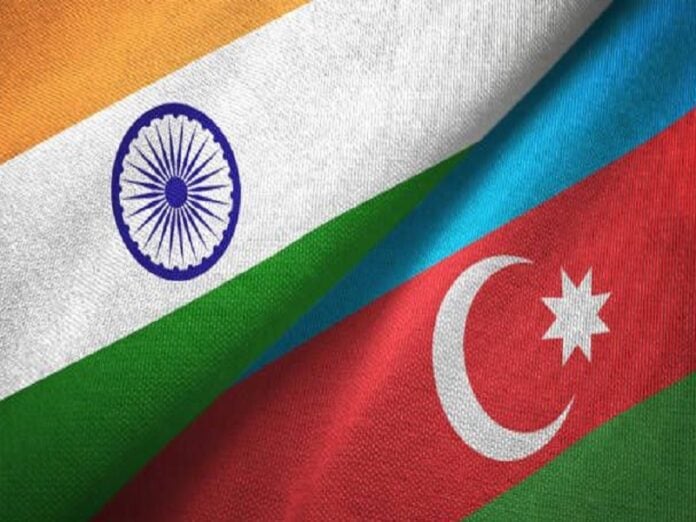Indian-Azeri relations plunged in 2020 after Baku took Pakistan’s side on the Kashmir Conflict following Islamabad’s support of Baku in its war with Armenia at the time, which in turn prompted Delhi and Yerevan to ramp up military cooperation. In early December, President Aliyev lambasted India for its arms exports to Armenia, but this analysis here argues that they’re incomparable to France’s whose sales he also criticized. Whereas the West wants to divide-and-rule the region, India only wants to balance it.
Azerbaijan sees India’s arming of Armenia differently due to its experience of suffering from the latter’s revanchism since the late 1980s, just like India sees Azerbaijan’s support of Pakistan as more than an international legal position due its similarly lengthy experience of Islamabad-backed unrest in Kashmir. To be clear, these are two completely different conflicts, but the point being made is that Azerbaijan and India’s difficult experiences with their neighbors shape their views towards others’ ties with them.
These contrasting perceptions of one another’s motives for engaging with their rivals embroiled them in a security dilemma whereby they automatically view each other’s intentions with suspicion. Both also feel pressured to stay the course despite each having more to gain from resuming mutually beneficial cooperation with the other due to their concern about being accused of “betraying” their partner. Neither practice zero-sum policies, but they’re nevertheless pushed in that direction by this context.
Terrible Indian-Azeri ties are therefore an anomaly for each of them that’s attributable to their unique security dilemma, which involves one another’s most sensitive issues despite these two countries being located in totally different regions. The failure to break this deadlock that’s poisoned their relations over the past few years will deprive one another of valuable opportunities that only the other can provide for them with respect to the North-South Transport Corridor (NSTC) in which they both participate.
From India’s perspective, any potential rapprochement with Azerbaijan would streamline the planned Russian-Azeri-Iranian rail route from the Arctic Sea to the Gulf instead of having to detour around the eastern Caspian Sea via Central Asia en route to Russia’s mostly European-based domestic market. Furthermore, while Armenia can in theory facilitate the NSTC’s Black Sea branch corridor to Central & Eastern Europe (CEE), Syunik Province’s mountainous geography makes a rail route prohibitively costly.
Azerbaijan’s prospective interests in a rapprochement with India are complementary to the above in that it stands to financially and strategically benefit from facilitating Indian-Russian and Indian-CEE trade via rail transit across its territory. Moreover, Indian-Azeri trade could also boom, which is important for both since India is on pace to become the world’s third-largest economy, while Azerbaijan is already the largest economy in the South Caucasus and among the most stable ones anywhere in Eurasia too.
Both are also close Russian partners who’ve recently come under American pressure for their refusal to distance themselves from Moscow. The US responded by launching information warfare campaigns, hinting at sanctions, and expanding military ties with their rivals. As consummate realists, their leaders should realize that more unites them than divides them nowadays, and that there’s so much that they can collectively do for the greater multipolar good if only they can overcome their security dilemma.
As the first step to that end, they can either informally explore each’s interest in a rapprochement behind closed doors or rely on their shared Russian strategic partner to unofficially do so in their stead as a neutral mediator, but somehow or another they need to express and reciprocate this desire. If that happens, then neither should be all that concerned that improving ties with the other would amount to a “betrayal” of Armenia or Pakistan since those two shouldn’t hold them to zero-sum standards.
India’s interest in aiding Armenia’s clumsy balancing act and Azerbaijan’s in supporting its Pakistani co-religionists are important to each for their own reasons, but India and Azerbaijan can do more for one another than Armenia and Pakistan can do for them. Armenia’s economy is tiny, it’s pivoting towards the West, and its geography isn’t favorable for a rail route to the Black Sea, while Pakistan is unstable, is improving ties with the US, and relies on Iran for connecting with Azerbaijan just like India does.
Accordingly, remaining trapped in the zero-sum dynamics caused by their unique security dilemma with one another only works against India and Azerbaijan’s objective interests in the individual, bilateral, and especially multilateral senses. It’s therefore to each of their benefit that they explore a rapprochement with one another throughout 2024 aimed at resetting their ties, optimizing their multi–alignment policies, and collectively unleashing the NSTC’s full potential in pursuit of the greater multipolar good.







